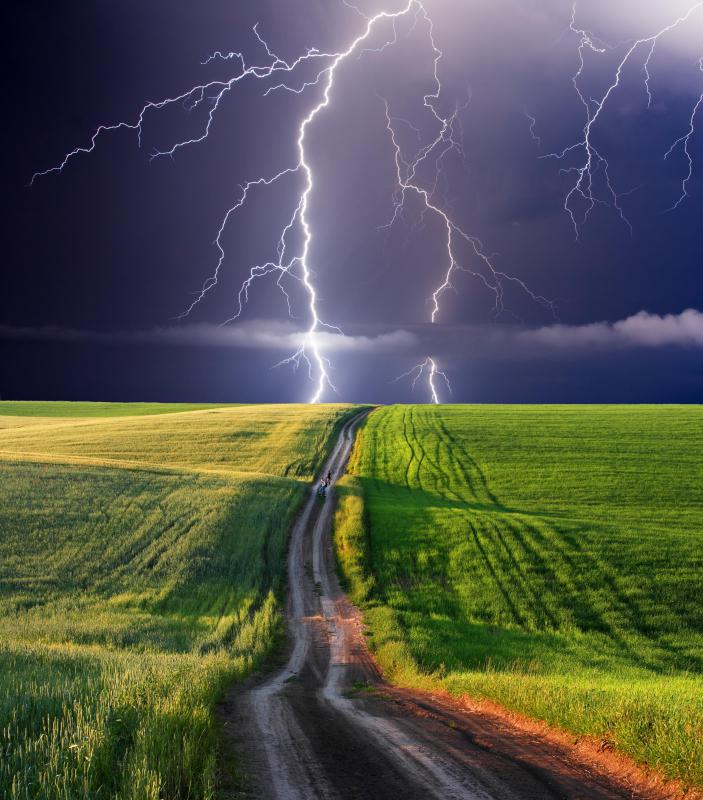At PracticalAdultInsights, we're committed to delivering accurate, trustworthy information. Our expert-authored content is rigorously fact-checked and sourced from credible authorities. Discover how we uphold the highest standards in providing you with reliable knowledge.
How Do I Become a Marine Meteorologist?
To become a marine meteorologist, students must complete an undergraduate or post-secondary education in marine meteorology. After finishing their degrees, students can choose to pursue an internship, search for employment, or continue their educations in this field.
Marine meteorology is the study of the relationship between the ocean and the weather. There are many avenues of employment available to those interested in this type of career. Once an individual has become a marine meteorologist, he can be hired to work in any field which relies upon daily accurate weather predictions. Local weather stations, government naval units, oil companies, and shipping supply companies are just a few of the possible employers that require experts in this field.

The first step to become a marine meteorologist is to obtain an undergraduate or post-secondary education. This type of degree can be undertaken at any university that offers a Bachelor's of Science with a focus in marine science, meteorology, or marine meteorology specifically. Students can benefit by attending a school which offers training in the field on deploying, servicing, and monitoring data collecting equipment used to help experts predict the weather. This type of technology also can be used to monitor ongoing weather phenomena above the ocean, as well as the water's changing currents and temperature to study their relationship.

After receiving their undergraduate degrees, students may choose to pursue an internship, look for a career, or begin work on a master's degree to become a marine meteorologist. Many companies do not require a master's or doctoral degree, and are willing to accept candidates with the appropriate bachelor's degree and some field experience. Internships are often available to students during their final year of studies to work with a company who consistently employs marine meteorologists to facilitate its daily business activities. This type of position is not always paid, but can constitute college credit towards a student's degree, and does provide him with valuable direct experience as well as a professional reference for his future resume.
Individuals who choose to pursue higher education can obtain a master's in meteorology or marine science. These courses often cover broad topics designed to prepare students to enter into any disciplinary field without limiting them to one specific area. Meteorology students may also study climate change, aviation meteorology, and space launch meteorology. Doctoral programs in this field are usually structured by the professors of the university at which each student has chosen to study, and is tailored to directly address each student's specific field of interest. A doctoral dissertation is required upon completion of this type of degree.
AS FEATURED ON:
AS FEATURED ON:












Discuss this Article
Post your comments